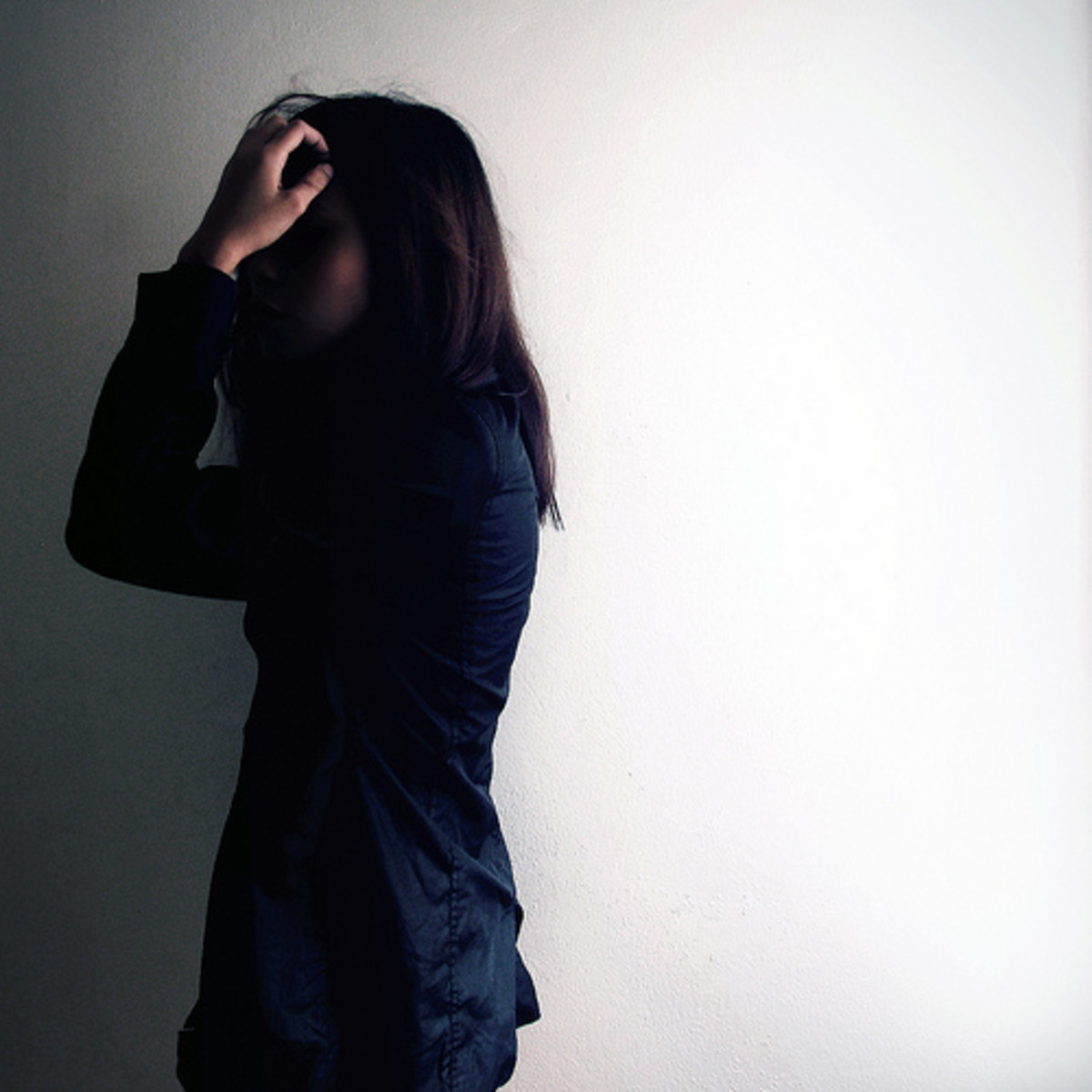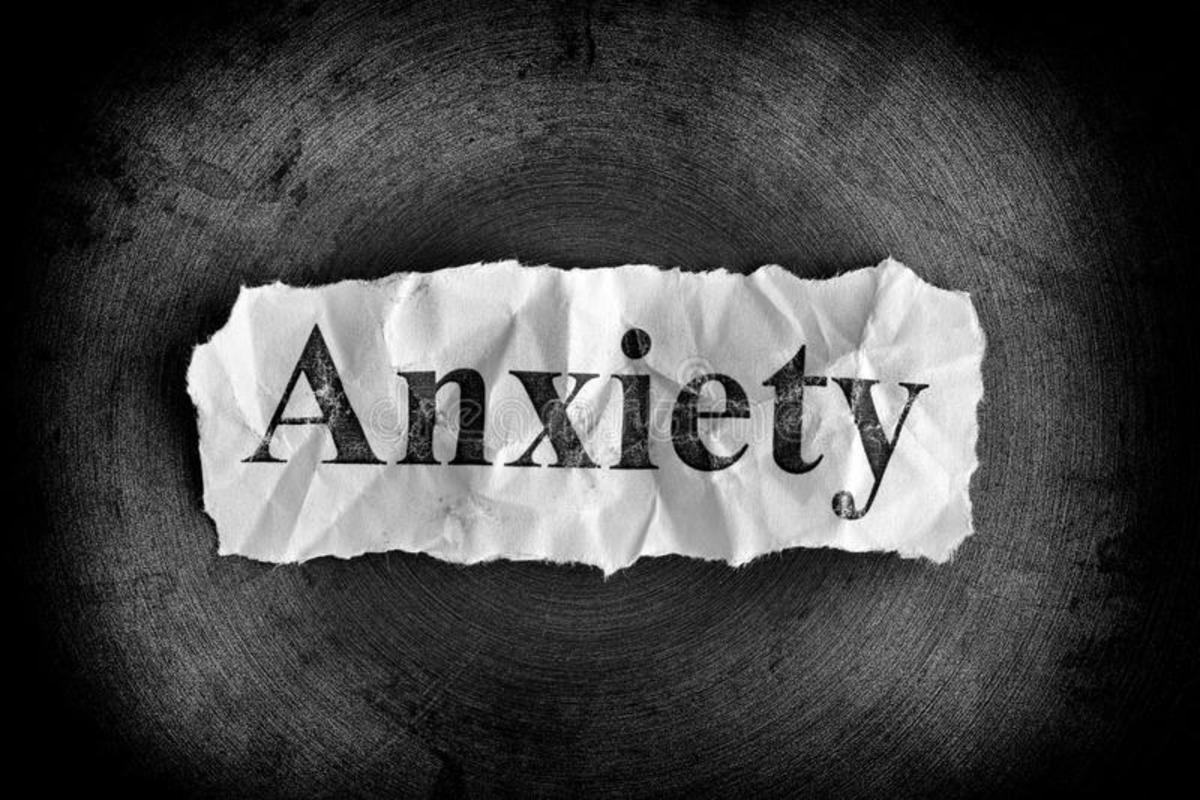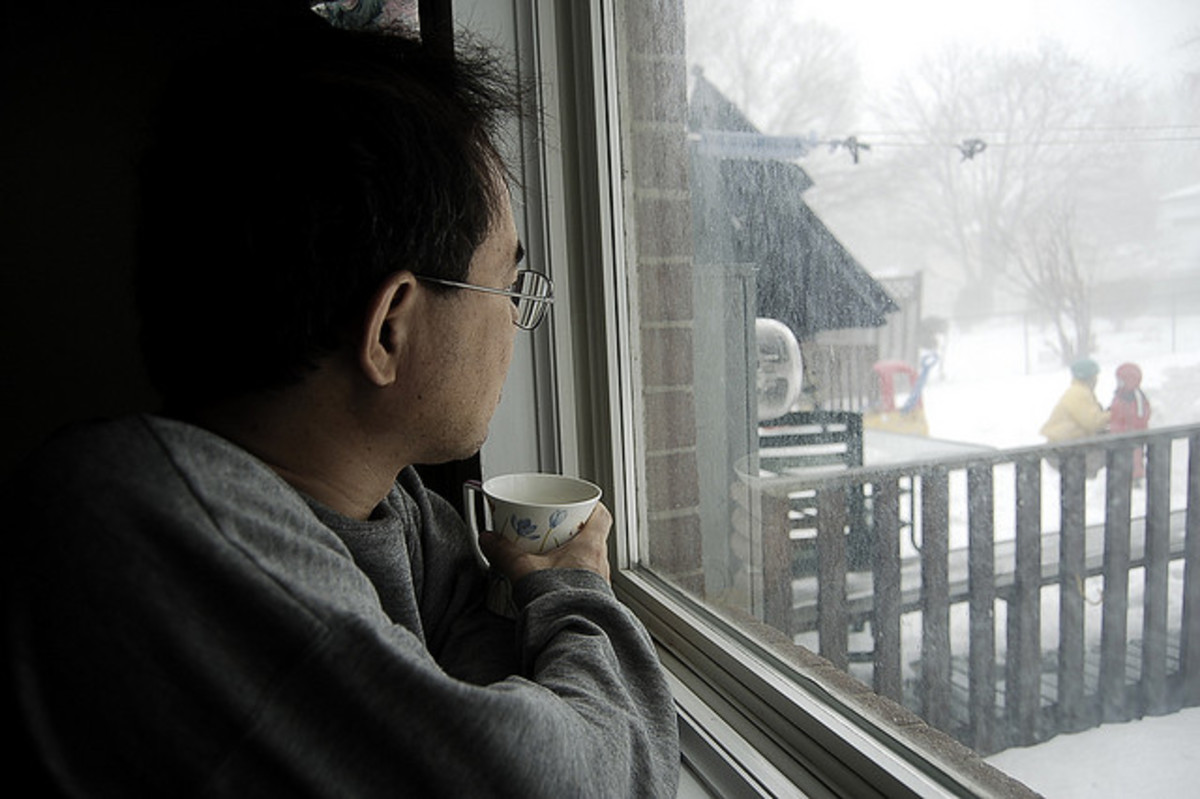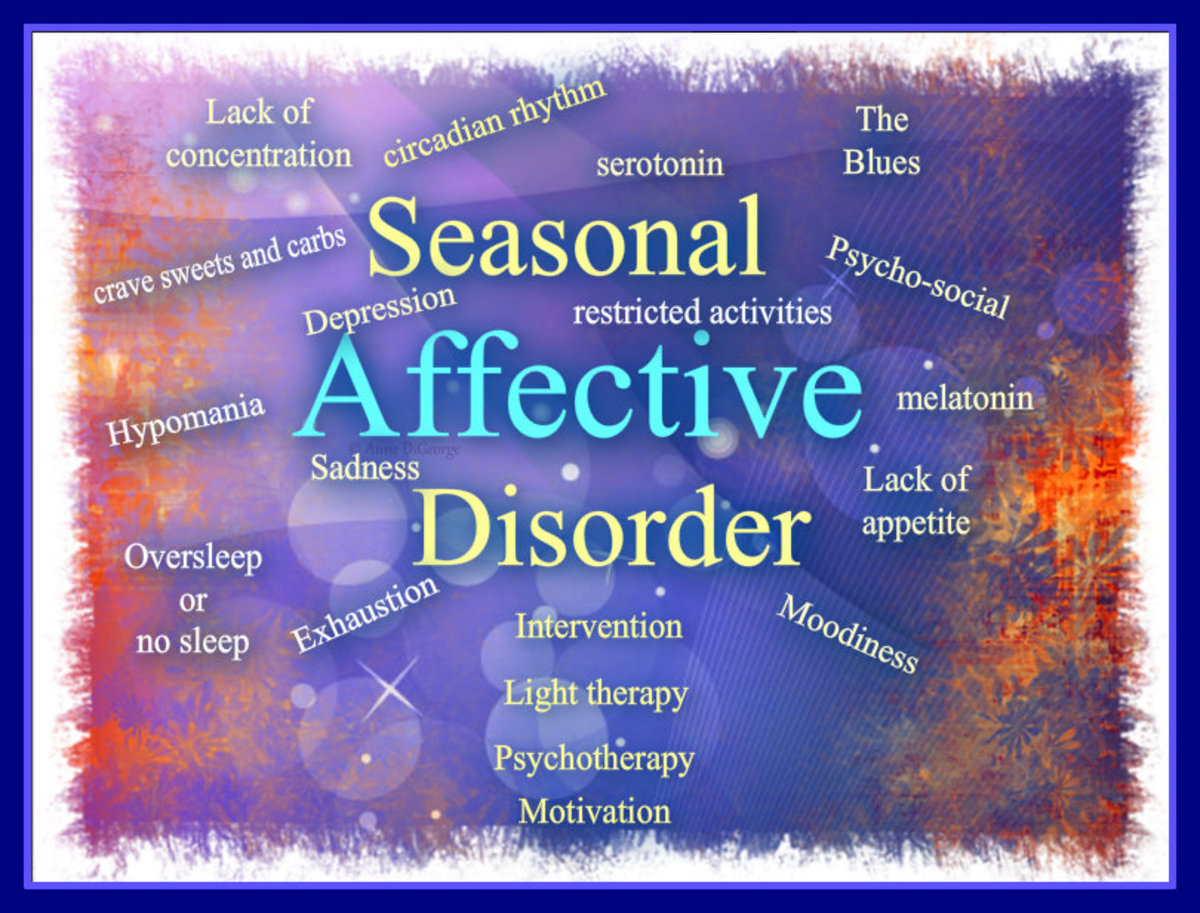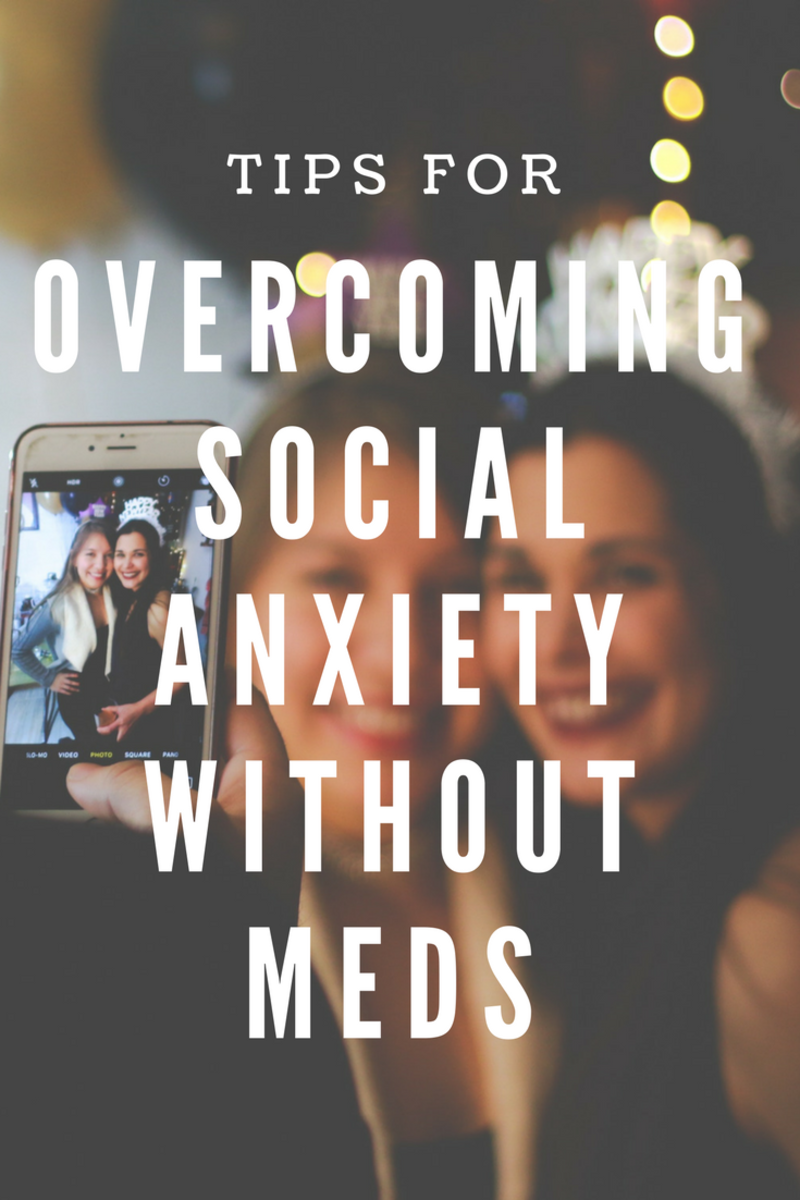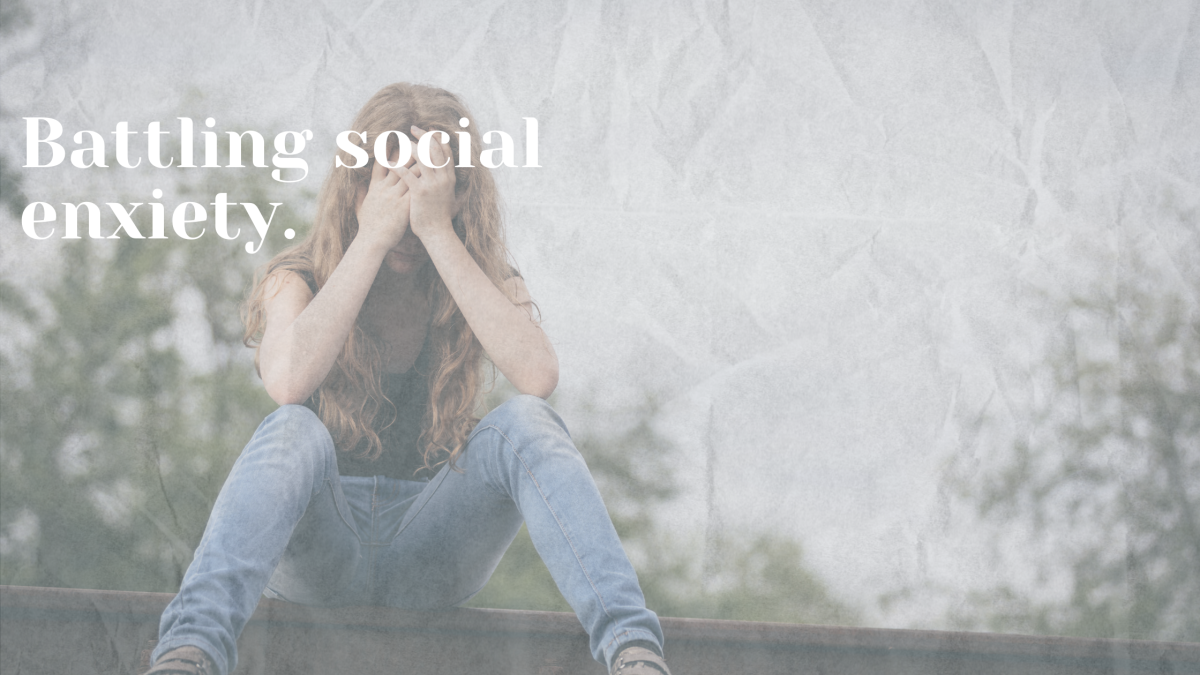- HubPages»
- Health»
- Mental Health»
- Anxiety Disorders
How to recognize Social Anxiety Disorder

What is Social Anxiety Disorder?
I was 20 years old and I couldn't stand the thought of leaving my house. Worse, I had to find a job. Going on a job interview, just one, was so exhausting I had to go home and go to bed to recover from the experience. I had no idea what was wrong with me, I was never like this before. I would not be diagnosed for YEARS, which meant I had to find a way to deal with it myself. What was wrong with me? Why did I suddenly have a fear of talking to people, even on the phone? Why couldn't I be normal just like everyone else? I was shy and fearful as a child but this was ridiculous.
That was in 1981. Today most people have heard of or know someone with Social Anxiety Disorder. In 1981 there was no internet for me to research to find out what was wrong with me.
People with Social Anxiety Disorder go to great lengths to avoid social situations. They can become overwhelmingly anxious and self-conscious even in everyday social situations that to the average person are normal or of little consequence.
Theirs is an intense fear of being scrutinized by others, constantly being judged or of doing something embarrassing. Even though they may find their own anxiety unreasonable, they can't overcome it by themselves. They don't even know how to or why they feel the way they do.
Social Anxiety Disorder (also known as SAD) can be debilitating. As I stated earlier I, for instance, could not go on a job interview. The idea of putting myself in a situation to be judged by someone else (which is all an interviewer is doing) was too overwhelming to cope with. Speaking to the person on the phone wasn't much easier and always there are the afterthoughts of "did I sound alright?" "did I say something stupid?"
Social situations such as parties, dinners, small gatherings, even a date, are so stressful they can cause sweating, shaking, and/or extreme nervousness. This can build into a panic attack. The feeling that you are dying, sweats, a belief that you cannot breath.
While SAD usually begins to show itself during the teen years of after a stressful or traumatic situation it can occur anytime later in life as well due to the same reasons and is often accompanied by other mental illnesses such as Obsessive Compulsive Disorder (OCD) or Depression.
Social anxiety disorder is the most common anxiety disorder and the third most common mental disorder in the U.S., after depression and alcoholism. An estimated 19.2 million Americans have social anxiety disorder. It is more common in women than in men.
Many people with social anxiety disorder feel that there is "something wrong," but don't realize it can be a mental illness. Some Symptoms of social anxiety disorder can include:
- Intense anxiety in social situations.
- Avoidance of social situations.
- Physical symptoms of anxiety, include confusion, pounding heart, sweating, shaking, blushing, muscle tension, upset stomach, and diarrhea.
- Intense fear of being in situations in which you don't know people
- Fear of situations in which you may be judged
- Worrying about embarrassing or humiliating yourself
- Fear that others will notice that you look anxious
- Anxiety that disrupts your daily routine, work, school or other activities
- Avoiding doing things or speaking to people out of fear of embarrassment
- Avoiding situations where you might be the center of attention.
Associated characteristics include:
- Low self-esteem
- Trouble being assertive
- Negative self-talk
- Hypersensitivity to criticism
- Poor social skills
Children with SAD may express their anxiety by crying, clinging to a parent, or throwing a tantrum. Most parents will not even realize that their child is acting out as a result of stress and anxiety.
What's it Means to Have SAD
I developed SAD after a violent relationship and not knowing I was suffering from Post Traumatic Stress Disorder. Additionally, I was battling depression since puberty, which led me to believe it was Chemical. But since I was the kind of person that did not like anything to stand in the way of me and whatever it was I wanted to do, I would ignore these little issues. Today I constantly tell people to "Face their Fears".
Depression could sometimes get me down to the point of sitting in my darkened room for 3 days without eating, rocking on my bed. Still, somehow someway I would bounce back and get myself together. I believe in the power of my mind. I believe we can and do convince ourselves of a great many things. I convinced myself I was fine. I would "talk myself down" from my depressions and my anxiety attacks.
Between the ages of 14 and 20, I was a serial dater. I dated over 40 boys in those 6 years alone. Had 1 long term (5 yr) on/off again relationship and 1 friend with benefits. I was clearly not a shy, introverted person. I had no problem meeting boys, going after what I wanted, and going to parties and having a multitude of friends. I sang in front of a group of people one night at a mall and drew a crowd. I even did "stand up" and was the class clown in school.
But at 20, suddenly and without warning, I could not talk to strangers on a bus or in the supermarket, ask a clerk a question, go on a job interview, talk to strangers on the phone, be introduced to someone and get beyond "hi" or make an appointment to go anyplace. I did not have my nails done, my hair cut or make a doctors appointment. I would not attend parties or weddings. What had happened to me?
There is no single known cause of social anxiety disorder, but research suggests that biological, psychological, and environmental factors may play a role in its development.
- Biological: Social anxiety disorder may be related to an imbalance of the neurotransmitter serotonin. Neurotransmitters are special chemical messengers that help move information from nerve cell to nerve cell in the brain. If the neurotransmitters are out of balance, messages cannot get through the brain properly. This can alter the way the brain reacts to stressful situations, leading to anxiety. In addition, social anxiety disorder appears to run in families. My oldest son has it also.
- Psychological: The development of social anxiety disorder may stem from an embarrassing or humiliating experience at a social event in the past.
- Environmental: People with social anxiety disorder may develop their fear from observing the behavior of others or seeing what happened to someone else as the result of their behavior (such as being laughed at or made fun of). Further, children who are sheltered or overprotected by their parents may not learn good social skills as part of their normal development.
In my case I believe it was hereditary and I have passed it on to my oldest son who exhibited signs of SAD around the age of 16. Sometimes in the mornings before going to school he would complain of stomach aches which were very real and brought on by his fear of being in school and being exposed to the criticism or judgement of his peers as well as his teachers.
My son was cute, popular and well liked his entire life. There was no logical reason for these feelings. I made an appointment to take my son to a psychologist.
What can be done about Social Anxiety Disorder
When I took my son to his first psychologist appointment I sat in with him. At one point I explained to his psychologist that I too had Social Anxiety Disorder when I was 20 to 21 but was not diagnosed as I never sought help and did not know what it was. His doctor asked me what i did about it as obviously I had gotten over it due to the fact that I owned my own store and clearly had to deal with people on a regular basis now.
I told him the first step I took was because I had to find a job and make money. I would search the Want ads on Sunday and make the few phone calls I was capable of making on Monday after psychologically preparing myself for a about 3 hours. Then I would make interview appointments. One on Wednesday, one on Thursday and one on Friday. One a day was all I could handle. Never on Tuesday as that was not enough time to prepare myself. On Wednesday I would go to the interview and afterwards, feeling relieved that it was over. Go home and enjoy the rest of my day. I would do the same on Thursday and Friday. If I did not find a job right away, I would do the same thing the following week. Eventually, I was able to go to two in one day without a melt down. Starting a job was a whole other situation. I could not work anyplace where the people were not nice and friendly. I had to quit if I was in any way uncomfortable as that was entirely too stressful.
After I told the doctor how I eased my way into uncomfortability just taking on a little at a time until I could eventually tolerate more he told me I should have written a book about it. I was puzzled.
"why?" I asked
"Because you would have made a fortune back in 1981 with a book like that. That is the same method that we use today."
I really didn't need to hear that.
But it's true. Today it's called "Cognitive-behavior therapy" where a patient is exposed to the feared situation a little bit at a time. About as much as they can cope with in small degrees. There is also counseling to improve self-esteem and social skills, as well as relaxation techniques, such as deep breathing or meditation.
Additionally, there are medications that are prescribed for Social Anxiety Disorder such as anti-depressants, tranquilizers (benzodiazepines), such as Xanax, or Valium and Ativan; beta-blockers, often used to treat heart conditions, may also be used to minimize certain physical symptoms of anxiety, such as shaking and rapid heartbeat.
I have xanax for emergencies, a small dosage that I carry with me just in case. The label is worn out as this particular prescription has been in my pocketbook since September 2008. I refuse to take it unless absolutely necessary. More often than not, I can "distract" myself from these irrational thoughts and don't need to do much else.
Social anxiety disorder symptoms can change over time. They can flare up if you're facing a lot of stress or demands in your life. Or if you completely avoid situations that would usually make you anxious, you may not have symptoms. Although avoidance may allow you to feel better in the short term, your anxiety is likely to persist over the long term if you don't get medical treatment.
There is no blood test to diagnose SAD, only a psychologist or a physician can do so.
Debilitating anxiety can ruin a person's life. A teen with SAD may turn to drugs or alcohol to "self medicate" and may be considered "under achievers" when in fact they are paralyzed by irrational fear. Left untreated SAD can also lead to severe depression and even suicide.
So if you or anyone you know has a chronic fear of social situations and is worried about being criticized or embarrassed, or social situations create extreme anxiety which is out of proportion to the situation or they find themselves avoiding social situations in general, it is possible that they are suffering from Social Anxiety Disorder or Social Phobia and should get help as soon as possible.
- Healthline - Health Search Engine and Medical Information
Healthline is the first consumer medical search engine focused on delivering results from trusted, high-quality healthcare websites. Get answers to all your health questions and use our tools to save, organize, and send the results to friends and fam
- HubPages
HubPages is your online space to share your advice, reviews, useful tips, opinions and insights with hundreds of other authors. HubPages is completely free, and you can even earn online ad revenue!

